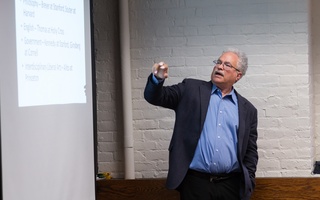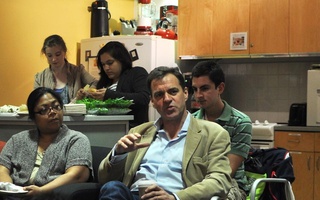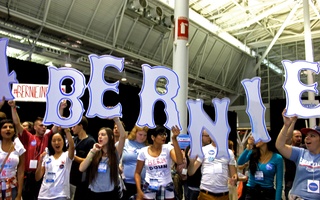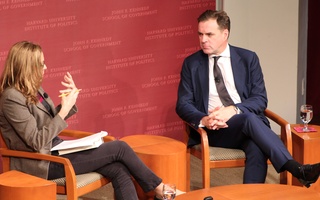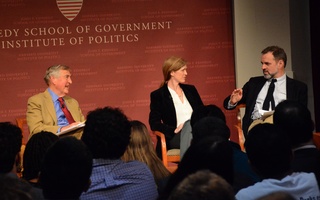Today, Ferguson, Missouri will be holding its first city council elections since Michael Brown was shot and killed last August. The city of Ferguson has been around for 121 years; during those first 120 years, only three black candidates ran for city council. This year, there are four black candidates for the Ferguson city council. This is no coincidence. Many of those in Ferguson realize that to prevent the next police officer’s bullet from killing another unarmed, black teenager, they need the ballot.
Yet, fresh off the heels of the 2014 midterm elections, which saw the lowest voter turnout since World War II, I am still worried. I am worried that our generation is losing sight of what it means to even have the right to vote. I am worried that not enough young people, people of color, and people who care about social justice are participating in the political process.
I understand that low voter turnout is more complex than mere apathy. Despite the great strides made in the past century—from the extension of suffrage to disenfranchised groups, to the democratization of the nomination process, to campaign finance reform—political participation is still a costly act, and the single mother working two jobs might understandably be thinking more about making rent than the platform positions of city council candidates.
However, many of us choose not to exercise our right to vote even when economic hardship is not the issue. Some of us may live in solidly blue or solidly red states, so we feel like our one vote won’t make a difference. Others may have once cared about civic engagement, but have now become disengaged because it seems like it doesn’t matter who gets elected. After all, our federal government seems to be more divided than ever and in December, the 113th Congress just narrowly missed becoming the least productive Congress in history. I understand these frustrations because these are the same cynical thoughts that often run through my mind.
But toward the end of last semester, after an open discussion about U.S. politics and race relations in the Junior Common Room of Winthrop House, I realized that I should never stay home on Election Day. At the discussion, there was an emphasis on the lack of local political participation that produces such non-indictments.
For example, despite a worthy write-in effort, Ferguson prosecuting attorney Robert McCulloch ran unopposed in his general election and was reelected in November, just three months after Michael Brown was shot and killed. Legal scholars, including Winthrop House’s very own House Master Ronald S. Sullivan, Jr., have observed that McCulloch played a critical role in the grand jury’s decision not to indict Darren Wilson.
Even though the federal government receives the lion’s share of the media’s attention and the people’s blame when the system produces results that run contrary to justice, if we really want to effect systemic change, we must focus our efforts on the more immediate political and structural conditions that are producing injustice. What happened in Ferguson and Staten Island does not begin with the president. What produced those non-indictments begins with a district attorney. In some cities, it begins with a police chief. In others, it begins with a mayor, or the city council. All of these are locally elected offices that are instrumental in the carrying out of justice, yet they receive too little attention in our political discourse.
That is why it is imperative that those of us who care about social justice do the things that keep those who are locally elected accountable to the principles of justice, equality, opportunity and freedom that we expect them to uphold. This means that we must vote in local elections. It means encouraging those who we know will represent us to run for elected office. Like the four black candidates running for city council in Ferguson, it might even require us to run for office ourselves. There’s a reason why the Constitution begins with three simple, but vital words, “We the People.” It is not only some people who should have a say in what direction our country goes in. Rather it is we, the collective people, who have the power and responsibility to shape this nation into the nation we know it can, and should, be.
Dennis O. Ojogho ’16, a Crimson editorial writer, is a government concentrator in Winthrop House.
Read more in Opinion
Supporting Our Families








